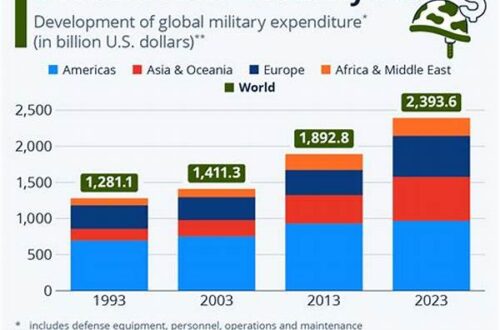The phenomenon of resource depletion from military engagements is a critical issue that has far-reaching implications for global sustainability and security. As nations around the world continue to allocate significant portions of their resources towards defense and warfare, the environmental and economic consequences have become increasingly evident. This article seeks to explore the multifaceted impact of military activities on natural resources and offers a comprehensive analysis of the underlying factors contributing to this complex dilemma.
The Environmental Impact of Military Engagements
Resource depletion from military engagements significantly affects the environment, as military actions tend to consume vast amounts of both renewable and non-renewable resources. The production and maintenance of military equipment, such as aircraft, vehicles, and weaponry, necessitate substantial inputs of metals, fossil fuels, and various other materials. The extraction and processing of these resources often result in severe environmental degradation, including deforestation, soil erosion, and water pollution. Additionally, military exercises and combat operations frequently lead to the destruction of ecosystems, threatening biodiversity and destabilizing local habitats. The cumulative effect of these activities underscores the pressing need for more sustainable military practices that balance national security interests with environmental preservation. Nations must consider implementing ecologically responsible strategies to mitigate the adverse consequences of resource depletion from military engagements, thus ensuring the long-term viability of the planet’s natural systems.
Economic Consequences of Resource Depletion
1. Resource depletion from military engagements imposes a financial strain on national economies by diverting funds away from crucial areas such as education, healthcare, and infrastructure development.
2. The escalation in defense spending often leads to increased national debts, raising concerns about economic stability and fiscal responsibility.
3. The competition for dwindling resources can result in heightened geopolitical tensions, further exacerbating the challenges to global peace and economic cooperation.
4. Nations may face challenges in sustaining military capabilities over time due to the finite nature of essential resources.
5. Technological advancements are crucial in addressing resource depletion from military engagements, as they can drive more efficient use of resources and promote sustainable practices in defense sectors.
Strategic Alternatives to Conventional Military Approaches
The adoption of innovative strategies can mitigate resource depletion from military engagements by emphasizing efficient use of materials and sustainable practices. For instance, the integration of renewable energy sources in military operations can significantly reduce reliance on fossil fuels, decreasing both environmental impacts and operational costs. Additionally, the development of advanced technologies, such as autonomous vehicles and precision-guided munitions, offers the potential to minimize resource consumption by enhancing weaponry efficiency and effectiveness. Collaborative defense initiatives and multilateral partnerships can further enable nations to share resources and technologies, fostering more comprehensive and sustainable security solutions. These strategic alternatives highlight the necessity of rethinking traditional military paradigms to prioritize long-term ecological balance and resource conservation while maintaining national defense capabilities.
International Collaboration and Resource Management
Effective international cooperation is imperative to address resource depletion from military engagements. By establishing treaties and protocols that emphasize resource conservation, nations can collectively manage the global commons and reduce the environmental impact of defense activities. Collaborative research and development efforts are essential to accelerate the adoption of sustainable technologies and practices across defense industries. Furthermore, transparency and accountability in military expenditures can enhance trust and facilitate cooperative resource-sharing arrangements among countries. Multilateral forums can serve as platforms to negotiate reduction targets and exchange best practices, ensuring that military operations contribute positively to global security without exacerbating resource depletion.
Innovation and Sustainable Defense Policies
Innovation plays a crucial role in curbing resource depletion from military engagements. The incorporation of green technologies, such as biofuels and energy-efficient systems, into military logistics can significantly decrease the ecological footprint of armed forces. Developing robust recycling and repurposing programs for military equipment and materials can further mitigate the strain on exhausted resources. Policy-makers must prioritize sustainability within defense agendas, crafting regulations that incentivize resource efficiency and environmental stewardship. By aligning military strategies with broader sustainability goals, nations can safeguard their security interests while promoting global ecological health.
Balancing Security and Sustainability in Military Planning
Achieving harmony between security imperatives and environmental sustainability in military planning necessitates a comprehensive re-evaluation of defense strategies. Resource depletion from military engagements must be addressed through holistic approaches that integrate environmental considerations into national security frameworks. Such integration can be facilitated by rigorous impact assessments and the establishment of environmental guidelines tailored to military contexts. Decision-makers must engage diverse stakeholders, including environmental experts, to design adaptable strategies that effectively mitigate ecological degradation. Ultimately, a paradigm shift towards sustainable military planning will reinforce global peace efforts by minimizing the resource-driven conflicts that threaten geopolitical stability.
Conclusion and Future Implications
In conclusion, resource depletion from military engagements presents a formidable challenge that demands immediate and concerted action at both national and international levels. The intertwined nature of military operations and resource consumption necessitates innovative approaches that prioritize ecological integrity alongside defense requirements. By fostering international collaboration, investing in technological advancements, and adopting sustainable military policies, nations can address the pressing issue of resource depletion while safeguarding security interests. It is imperative that policymakers and military leaders recognize the critical importance of environmental sustainability in their strategic considerations to ensure a secure and resilient future that benefits all humankind. As we move forward, a commitment to sustainable practices will be vital in overcoming the challenges posed by resource depletion from military engagements and in promoting a more harmonious coexistence between humanity and the natural world.





